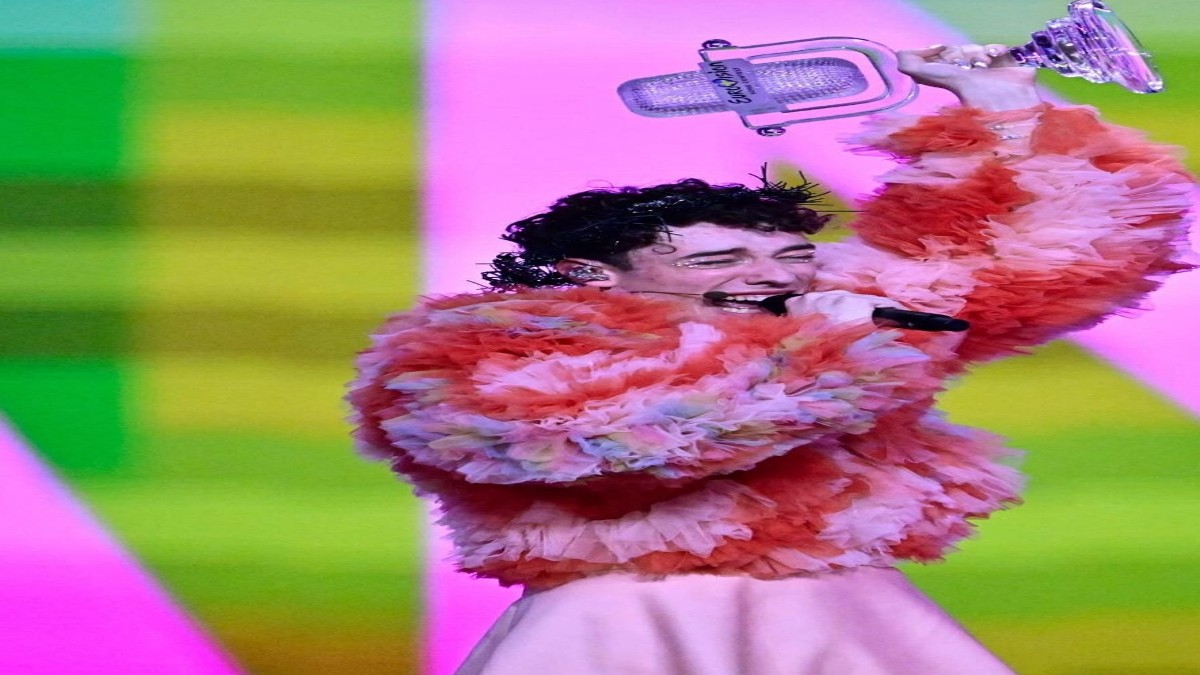Nemo
Nemo, Switzerland emerged victorious in the Eurovision Song Contest, showcasing both musical prowess and poise amidst a politically charged atmosphere. The win came against the backdrop of controversies surrounding Israel, adding an extra layer of tension to the competition.
The Eurovision Song Contest, renowned for its celebration of cultural diversity and musical talent, took place in a climate overshadowed by political tensions. The host country, Israel, found itself at the center of controversy due to ongoing geopolitical issues.
This backdrop heightened the scrutiny surrounding the event, as artists and audiences alike grappled with the intersection of music and politics.
Against this backdrop, Switzerland’s victory came as a beacon of musical excellence and unity. The Swiss entry captivated audiences with a mesmerizing performance, transcending the political noise to deliver a message of harmony and inclusion.
Despite the challenges and distractions, Switzerland’s artist captured the essence of Eurovision, reminding viewers of the power of music to unite people across borders and ideologies.
However, the road to victory was not without its obstacles. The competition saw fierce competition from talented artists representing countries across Europe.

Each performance brought its own unique flair and style, making the final outcome uncertain until the very end. Yet, Switzerland’s entry stood out for its combination of memorable melodies, powerful vocals, and a message that resonated with audiences far and wide.
As the confetti fell and the cheers echoed throughout the arena, Switzerland’s triumph served as a testament to the enduring spirit of Eurovision.
Despite the challenges posed by political controversies, the contest remained a platform for artists to showcase their talents and connect with audiences on a deeper level. In the end, it was Switzerland’s ability to rise above the noise and deliver a captivating performance that earned them the title of Eurovision champions.
As the celebrations continue and the echoes of Switzerland’s victory reverberate throughout the Eurovision community, the message is clear: in a world divided by politics and strife, music has the power to bring people together in harmony.
Switzerland’s win serves as a reminder of the universal language of music, transcending boundaries and uniting people in a shared celebration of creativity and expression.
In the aftermath of Switzerland’s triumph, discussions continue about the role of politics in Eurovision and its impact on the competition.
Some argue that political tensions should not overshadow the music, while others believe that artists have a responsibility to address pressing issues through their performances.
Despite the controversies, Eurovision remains a beloved tradition that captures the imagination of millions around the world. The contest provides a platform for artists to showcase their talents on a global stage, fostering cultural exchange and understanding.
Looking ahead, the Eurovision Song Contest faces the challenge of navigating political sensitivities while maintaining its reputation as a celebration of music and diversity.
As the world eagerly awaits the next installment of this iconic event, one thing is certain: the power of music to transcend borders and unite people will continue to shine through, ensuring that Eurovision remains a cherished tradition for years to come.
In the wake of Switzerland’s victory, the Eurovision community reflects on the enduring legacy of the competition. From its humble beginnings to its status as one of the most-watched television events worldwide, Eurovision has evolved into a cultural phenomenon that unites people across continents.
Switzerland’s win serves as a reminder of the unpredictable nature of Eurovision, where underdogs can rise to the top and unexpected moments of brilliance can captivate audiences. As the dust settles and the excitement fades, fans eagerly anticipate the next chapter in Eurovision’s storied history, eager to see which country will take center stage and capture the hearts of millions around the globe.
Regardless of the controversies and challenges that may arise, Eurovision remains a testament to the power of music to transcend differences and bring people together in a shared celebration of creativity and expression. As Switzerland basks in the glory of its victory, the spirit of Eurovision lives on, inspiring generations of artists and fans to dream, create, and unite through the universal language of music.


















I never thought about it this way before. Thanks for opening my eyes.
I learned a lot from this article. Keep up the great work!
This was an excellent read. Very thorough and well-researched.